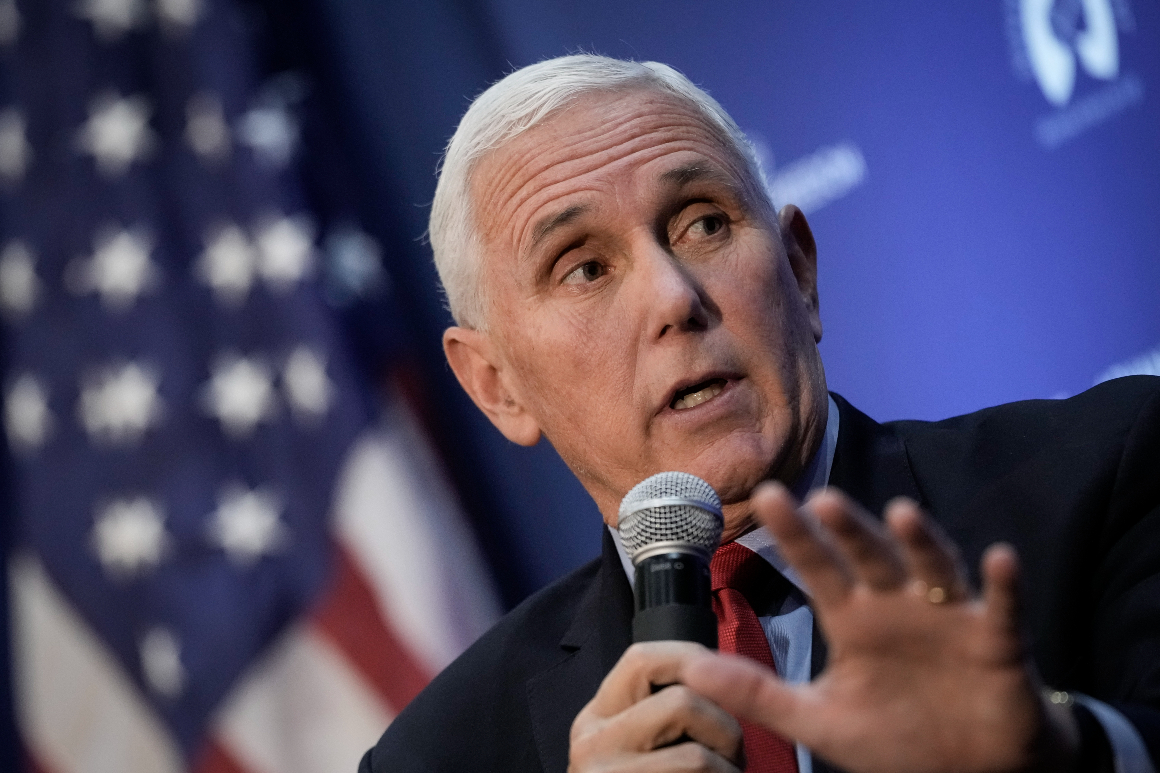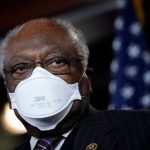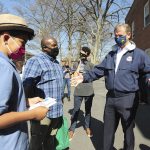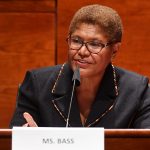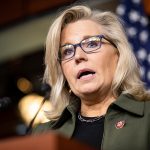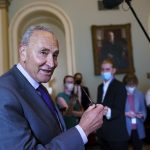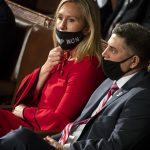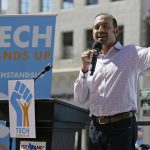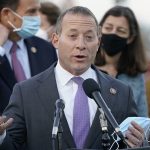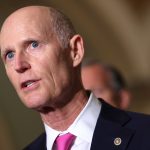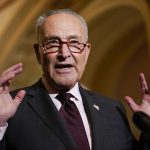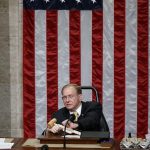The Jan. 6 committee is facing a major judgment call on how aggressively lawmakers should pursue information from both their own GOP colleagues and former Vice President Mike Pence.
As House investigators race to capture as much evidence as possible — at breakneck speed — about Donald Trump’s effort to subvert the 2020 election, the way they move forward could have drastic consequences to their legacy. They have to decide what lines they’re willing to cross in order to get direct testimony from Pence, who fled rioters inflamed by Trump, as well as from Republican lawmakers who have already declined to speak with the panel.
Chair Bennie Thompson (D-Miss.) said Tuesday both matters are high on the committee’s to-do list as it embarks on the most important phase of its probe and prepares to begin presenting some of its evidence publicly.
Thompson said the panel would huddle this week to discuss procedural options for Republican lawmakers who resist cooperating, including Reps. Scott Perry (Penn.) and Jim Jordan (Ohio), who both refused voluntary interviews with the committee. Although Thompson has recently suggested there may be little recourse, a top House leader called for a muscular approach to the holdouts.
“I would support compelling members to testify before the committee if they have relevant information to offer that is necessary,” said House Majority Leader Steny Hoyer (D-Md.).
Although “compelling” testimony could involve subpoenas, the House also has other weapons in its arsenal, from fining members, to stripping them of committee assignments, to seeking discipline from the Ethics Committee. So far, there’s no indication the committee is leaning toward any particular option.
The panel is also facing a crucial decision about whether to seek Pence’s participation in the investigation. Thompson confirmed the committee has had initial discussions with Pence’s counsel and has already said he’d welcome Pence’s voluntary cooperation, but demanding it would be another matter. In fact, Thompson suggested the panel has had so much testimony from people in and around Pence’s orbit that his direct testimony may not be necessary.
“I think at some point the committee will make a decision whether or not we already know enough about it or if we need to hear from the former vice president on it,” Thompson told reporters Monday evening.
Trump spent weeks pressuring Pence to single-handedly overturn the 2020 election during the Jan. 6 joint session of Congress. Pence, as vice president, was constitutionally required to preside over the session and the counting of Electoral College votes. Typically, the vice president’s role is ceremonial, but Trump embraced a fringe legal theory claiming that Pence had sweeping power to reject Joe Biden’s electors and send the election back to the states.
Pence ultimately rejected that theory, and his decision inflamed the crowd of rioters outside the Capitol. Some of them chanted “hang Mike Pence” as they ransacked the building.
Since then, relations between Trump and Pence have remained strained, with the former vice president defending his decision that day to certify the vote. Several of Pence’s former top aides have come before the committee as well, including his former national security adviser Keith Kellogg and former chief of staff Marc Short.
Thompson said in an interview published last week with NPR the panel was anticipating making a request as soon as this month for Pence to come before the panel, though officials with the committee have emphasized the decision is not final.
The committee is increasingly focused on illustrating a damning narrative for Trump: that he whipped up a crowd, sent them marching to the Capitol and then sat on his hands as the riot unfolded on television, ignoring urgent pleas from his aides, allies and even family members to intervene. A federal judge this week said those hours of silence could signal, as a legal matter, that he “agreed” with what the rioters were doing, since a “reasonable” person would have clarified his intent right away, once violence had broken out.
Rather than call for the violence to stop, Trump and his allies continued to press lawmakers to delay the certification of the election as long as possible. The attempt was ultimately stymied after Speaker Nancy Pelosi and Senate GOP Leader Mitch McConnell reconvened the branches to complete the certification of the election immediately after law enforcement dispersed the riot.
Thompson in separate comments to reporters Monday also responded to a POLITICO report that then-Vice President-elect Kamala Harris was inside Democratic National Committee headquarters on Jan. 6 when a pipe bomb was discovered outside by Capitol Police.
“Someone should [investigate] if they’re not [already],” he said Monday evening. “Until I read the story, I was not aware that she was in the building.”
Olivia Beavers contributed to this report.
